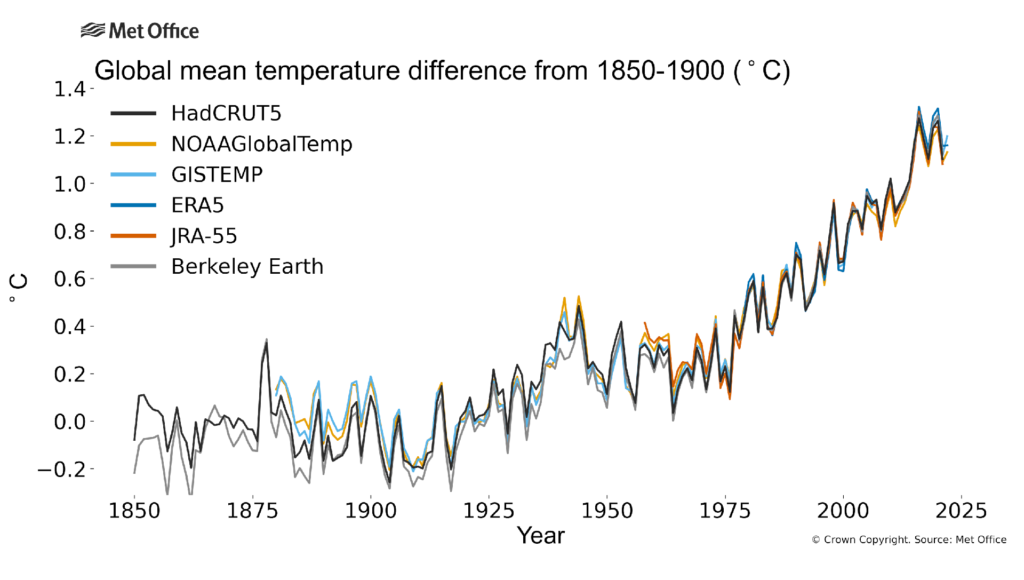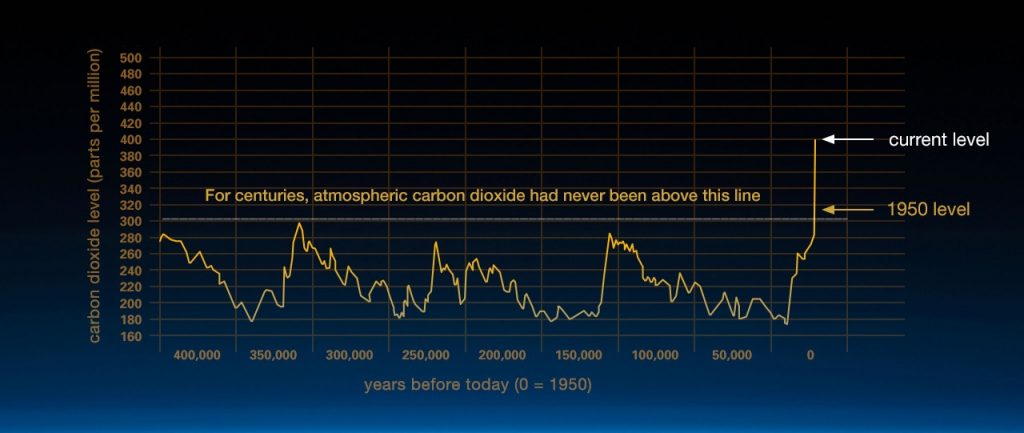What is Climate Change?
The Earth is getting warmer because the atmosphere is trapping heat radiating from the planet and stopping it from escaping into space.

The gases responsible for this trap – called “greenhouse gases” – include carbon dioxide (CO2), methane (CH4) and nitrous oxide (N2O).

The amount of CO2 in the earth’s atmosphere is far higher than at any point in at least the last 400,000 years. And it’s still rising, as this NASA graph shows.
We know the Earth has been through many climate changes in the past, but scientists agree that the current situation is not part of a natural change. Carbon dioxide is released naturally on earth, including by humans breathing, but humans have also increased the level of CO2 in the atmosphere by more than a third through burning “fossil fuels” like coal and oil.
The Earth can absorb and deal with greenhouse gases to a certain extent – trees absorb CO2 and release pure oxygen, and the oceans also play their part – but we have reached a point where the Earth is not coping sufficiently while CO2 and other gas emissions continue to rise.
The average temperature of the Earth has increased by one degree Celsius (1ºC) over the past 70 years, with several effects:
- Milder winters and warmer summers
- Greater variations in weather, with more frequent storms and heatwaves
- More frequent floods and wildfires, which affect wildlife and humans alike
- Melting of the polar ice caps, causing sea levels to rise
- Overall impact on the balance of the natural world, and on food production
The principal causes of the extra release of greenhouse gases are the production and use of energy (some 80% of the cause) and methane produced naturally by livestock (some 20%). The underlying cause is the increase in human population to 8 billion people worldwide, with ever-increasing demand on the Earth’s resources.
The challenge now, to prevent the situation getting beyond any control, is to reduce the emission of greenhouse gases to a manageable level (“carbon neutral”) while seeking longer-term methods of accelerating the removal of greenhouse gases from the atmosphere.
FURTHER READING:
See more detail at Following The Science
See www.bbc.co.uk/newsround/45880633 for a summary of issues and actions.
This page was last updated on 28th January 2023.